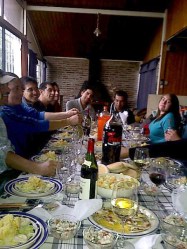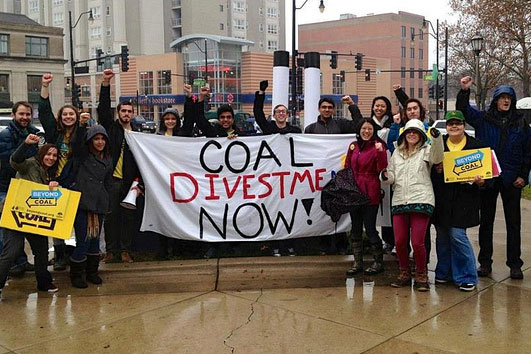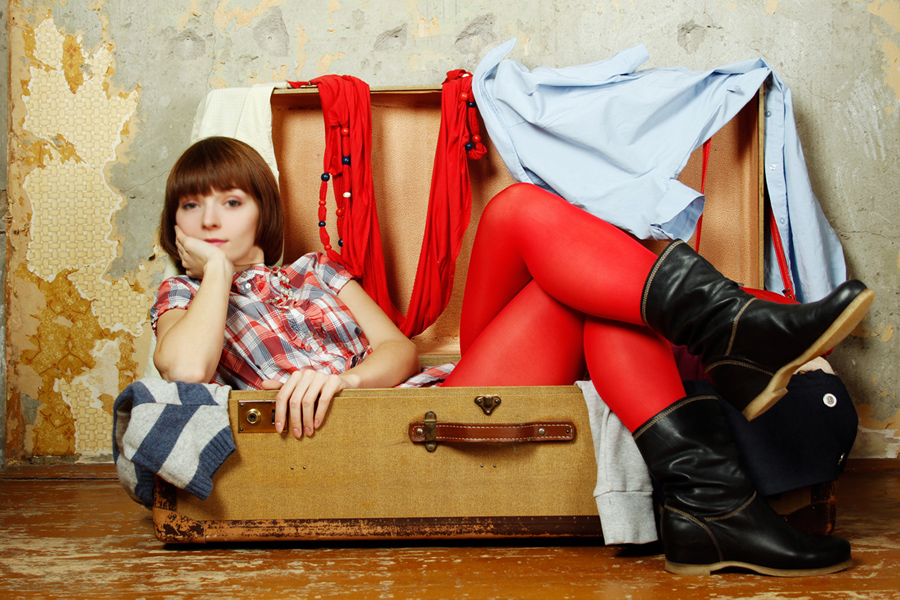“She’s gone,” the voice on the intercom said of my would-be landlady, the woman from whom I thought I’d rented an apartment for the next month. “You’re too late.”
I stood outside the building with my suitcase, so new to Buenos Aires, Argentina, that I had no idea of where the hell I even was. Two hours earlier, I’d arrived at the flat I’d arranged via the website Airbnb, which allows people to rent out their vacant guest rooms, living rooms, and apartments, and found the place locked and gated.
I hadn’t known what to do until a man ran from the doorway of the next building, repeating my host’s name and firing questions at me in a slurry of Argentine Spanish. I was overwhelmed from 30 hours of bus travel and could only nod as he stuffed an address into my hand and packed me into a quickly-hailed cab. I arrived at this mystery location, pressed the intercom button next to the door, and got a thorough dressing-down from the unseen stranger who, fortunately or unfortunately, spoke perfect English.
It would go down as one of the highlights (or is it lowlights?) of a three-month trek across South America in which I sampled all manner of websites and resources that facilitate sharing – and learned (often the hard way) the true value of human generosity.
Over the intercom, my landlady’s assistant informed me that she was out of the country and I was shit out of luck – no matter that I had confirmed the reservation with her via email the previous evening. Then, in a gesture of something like sympathy, the disembodied voice finally emerged, dressed in all-black and pointing toward the Avenida de Mayo. “You can find hotel rooms there,” he told me, “as cheap as $60 a night.” I took his directions to an Internet cafe and booked a hostel for $12.
The hostel only had room for me that one night and I didn’t have the money for it anyway (I’d pre-paid for the Airbnb apartment, and my travels in South America were budgeted to the last dollar) so the next day I threw myself on the mercy of strangers, sending out an SOS to the Couchsurfing Buenos Aires emergency mailing list. (Couchsurfing is the freegan version of Airbnb, a network of no-cost places to crash, and for a budget traveler in a crisis like mine, it can be a godsend.) A lovely woman named Veronica offered me a couch and I spent several exhausted days on her floor, reading and writing and talking and making contingency plans.

I’d lost my Couchsurfing virginity earlier in the trip, in Chile. I had liked the look of Peter’s profile — he was an American living among the natives, and his roommates Seba and Marta seemed friendly too. When I arrived at their apartment in Valparaiso I discovered I was not the only couch-surfer there that night; riding the other couch was an actor from Northern California who’d gone to high school with one of my cousins.
The next day, Marta and I spent the entire morning sitting at the kitchen table, talking culture and politics in both English and Spanish. That night we met up with other couch-surfers in nearby Vina del Mar — a collection of Americans and Chileans and Italians and Dutch getting drunk and eating paella together. I had been sad to say goodbye, and that first positive experience made it all the easier to reach out in the urgency of my unanticipated homelessness weeks later in Argentina.
From Veronica’s couch I was finally able to connect with my Airbnb landlady, and, after her ten-day sojourn abroad, I was able to move into the apartment. The rest of my stay was fine — although when I tried to get a refund for those lost ten days, shit got real. (To the credit of Airbnb, its customer service staffers were enormously helpful and courteous as they sorted things out, and I did eventually get my money back.
If I was overly confident about Airbnb, I had been most nervous about using Worldwide Opportunities on Organic Farms (WWOOF). During my time in Chile, I’d signed up to spend a couple weeks on a ranch in the southern part of the country. I’d read about it on WWOOF and communicated briefly with Ignacio, the proprietor, but I was still apprehensive. WWOOF is marketed as a work-trade, in which travelers offer moderate amounts of labor to small farmers in exchange for room and board, and it wasn’t clear to me what, exactly, I would be doing.
The surprise was a pleasant one. My “labor” consisted almost entirely of riding horses. Sure, I picked some apples too, and one day I helped to paint a fence, but mostly I just got to ride horses — beautiful, well-trained polo ponies, in the gorgeous near-Patagonian autumn. It was the sort of vacation for which people pay thousands of dollars, and when my time in paradise finally came to an end and Ignacio dropped me off at the bus stop to head off to Buenos Aires, I half-expected him to present me with a bill for my stay. He gave me a hug instead.
Because really, when the sharing economy is working at its best, it is not powered by money — it runs on generosity. And human generosity is an enormously powerful thing.
At the very start of my adventure I sat in a cafe in Santiago, where I’d gotten to know Russel, the friendly proprietor; I was lost in thought, my backpack at my feet. The cafe was empty except for two well-dressed, middle-aged women who came in, sat down, looked at a menu, and left. I arose to leave a few moments later, only to discover that my backpack — and with it my cash, debit card, passport, phone, laptop, glasses, camera, and stand-up joke notebook — had disappeared.
I approached the register in a desperate daze. Russel grasped the gravity of the situation before I did and called the carabineros, then helped translate my police report. A few things fell through the cracks — but then, “my laptop has a sticker of a Pop-Tart dressed like an astronaut trying to go into space with a toaster” doesn’t make much sense in any language.
Russel and his partner, Carlos, offered me a place in their guest room nearby, loaned me cash to buy food, and Russel pulled a notebook and pen from his own bag so that I could start to rewrite my lost jokes. It took me 10 days to get my new passport and debit card and I spent that time in the company of my adoptive Chilean family and their countless friends — Jose and Jorge and Fernando and many more.
On Good Friday, we all trucked out to their country house for a seafood feast, setting the table to the soundtrack of “Jesus Christ, Superstar.” Gallons of wine later, I watched my hosts break out wigs and costumes and belt selections from Evita. I had found my tribe, thousands of miles from home, in a moment of panic and need. They had helped a stranger, but when the time came for me to depart, they said good-bye to a friend.





